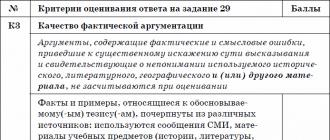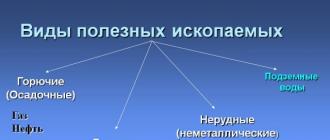What vitamins to drink during fasting. Oxygen starvation of the brain in adults and children: signs, consequences, how to treat. Causes that provoke oxygen starvation of the brain
Our company is engaged in cargo transportation in Russia and neighboring countries and is currently one of the leaders among companies in Sochi engaged in this type of service. From the first day of our activity, we organize and optimize cargo flows in order to provide reliable, safe transportation and delivery of goods for our customers.
Our services:

We value our image, so we pay special attention to the quality of delivery and transportation orders. Our specialists carefully study and analyze customer requests in Sochi in order to meet the needs of the market and develop new types of necessary cargo transportation services. We can insure your cargo, provide it with temporary storage, provide the services of an experienced forwarder and much more that is necessary to perform quality work.
Extensive experience in transportation and delivery of valuable cargo to / from Sochi
Having solid experience in delivering important and expensive cargo to Sochi, we have equipped our entire fleet of vehicles with the most advanced GPS navigation systems, which allows you to monitor the transportation in real time. Round-the-clock monitoring by our dispatchers allows customers to receive information about the location of the cargo and send the necessary assistance in case of unforeseen circumstances.
To carry out cargo transportation in Sochi, our company purchased the latest off-road trucks. They can be equipped with trailers of any type, to ensure quality delivery of the order. Modern equipment requires trained specialists, so we have experienced drivers with many years of experience transporting goods from Sochi over long distances.
Quality and efficient services
Employees of our transport company are sympathetic to the needs of customers and are always ready to help in difficult situations. By contacting us, you get a professional and prompt service for cargo transportation and delivery, a full package of necessary accompanying documents, as well as the necessary assistance in compiling documentation for customs control. This saves you time and reduces running costs.
Contact our company in Sochi and you will receive high quality cargo transportation services and a flexible pricing policy. We guarantee that you will be satisfied with the excellent service!
We care about our customers and try to optimize the cost of transportation. The company's employees carefully analyze the upcoming route and make suggestions to improve the speed of movement and shorten the path, which has a positive effect on the final amount of services for the transportation and delivery of goods to / from Sochi. For regular customers, we provide significant discounts and various bonuses that allow you to more economically distribute your funds.
Many of us dream of getting in shape. When you want to achieve perfection and sculpt every muscle in your body, you can resort to intermittent fasting. This will not only force the body to get rid of excess fat, but also dry out the body, like athletes.
What in the last century was considered a method of combating obesity and diabetes, today is used by everyone to improve the figure and cleanse the body. This is an intermittent fasting system. It is considered an ideal solution for those who do not want to keep track of calories, want to eat what they want, while maintaining harmony. Alternating fasting with meals can go on different schedules.
Related articles By spring, not a gram of fat The most energy-intensive exercises How to lose 1 kg per day
The most sparing schedule is 5/2, when a person eats ordinary food for 5 days, the remaining 2 days he keeps a diet. A more strict schedule is 6/1, where one day a week must be completely without food. The days before and after fasting, you need to eat only light food. Even more strict and frequent refusal to eat is chosen by those who play sports. They do not take a crumb into their mouths for 12 or 16 hours in a row, devoting the rest of the day to proper nutrition and mandatory training.
The benefits of intermittent fasting
Fasting once a week is therapeutic. The one that is carried out at certain intervals is suitable for athletes in order to work on the figure as efficiently as possible. The benefits of any type of intermittent fasting are as follows:
- You will learn to control the feeling of hunger and to distinguish the real need of the body for food from the psychological desire to eat.
- The metabolism is accelerated.
- Fat burning will take place slowly, but with a guarantee that the result achieved will not go away too quickly.
- The body will gain energy, and resistance to diseases will become stronger.
- Cholesterol and blood sugar will drop.
- Even without a strict diet, you can still achieve a noticeable result.
Intermittent fasting in bodybuilding
The goal of bodybuilding is to create a beautiful muscular body. To do this, athletes need to gain muscle mass, train intensively and periodically rid the body of body fat, while maintaining muscle. In order to fulfill these three conditions as efficiently as possible, intermittent fasting in bodybuilding is used. Nuances:
- A period without food stimulates the active production of testosterone, which gives muscle growth.
- Athletes choose for themselves individual schedules: 24 or 36 hours a week, 12 to 12 hours a day.
- The most effective is the refusal of food for 16 hours daily.
The latest program was offered by coach and nutritionist for athletes Martin Berhan to help his clients achieve ideal muscles. Refusal of food for 16 hours in a row, according to trainer research, is the most effective drying technique. The remaining 8 hours are allotted to consume the number of calories allowed to maintain shape.
To fit into a complex routine, you will have to completely exclude breakfast from it, while waking up early. Approximate calculation:
- If you get up around 7 am, then the first meal can be scheduled no earlier than 12:30-13:00. For the average urban dweller, getting used to such a regime is not so difficult, since most people do not have time to eat breakfast anyway.
- After 16 hours without food, it is important not to pounce on it, watching the calorie content of foods. The stomach will only accept something light.
- Most of the calories can be consumed after physical training, but not before it.

Intermittent fasting for weight loss
Many people try to lose weight by resolutely refusing food. Intermittent fasting for weight loss will indeed be ideal, but only if you are willing to make it a lifestyle or at least practice for a few months. Otherwise, a sustainable result cannot be guaranteed. Most people break down very quickly, which knocks down the work of the body that has not had time to adapt to the new rhythm. The results are completely opposite to what was expected.
What vitamins to drink when fasting
The peculiarity of any type of fasting is that the body does not need any additional stimulants to achieve the result that you need, whether it is drying, weight loss, recovery. You don't need to take vitamins while fasting. The effect of the procedure is the complete absence of any substances entering the stomach. Only then does the transition to its own nutrition begin, that is, the body begins to break down the fats that it has accumulated. In the days between fasts, vitamins can be taken on the advice of a doctor.

Fasting Contraindications
Not everyone benefits from intermittent food refusal. There are a number of contraindications to fasting. These include anorexia and bulimia. If a person has problems with eating behavior, experiments with fasting are not recommended. For such people, the feeling of hunger is the meaning, but not the results. Intermittent fasting can cause significant harm, such as hormonal changes in girls and women, as a result of which the menstrual cycle goes astray. Fasting restrictions are:
- pregnancy and lactation;
- ulcer and gastritis;
- childhood.
Most people who start fasting for the first time ask this strange, at first glance, question. In fact, it is very difficult for a modern person to get used to the idea that we can all live for quite a long time without eating any food at all. We were brought up with the idea that if we skip breakfast, we are bound to feel bad; if we also miss lunch, we are unlikely to be able to work; and if another missed dinner is added to breakfast and lunch, we will already be almost on the verge of death from exhaustion! Such ridiculous views are instilled in us from birth, and therefore it is not surprising that modern people know practically nothing about fasting. But hunger exists. This is a fairly well-established practice and it has its own rules of application.
One of the basic rules of fasting - complete lack of food. Remember - during fasting, a person should not eat anything at all! Do not drink juices, tea, coffee, do not suck on sweets and use chewing gum. Any alcohol is absolutely contraindicated. Your mouth must be firmly shut. Only in the complete absence of food will you be able to switch to internal nutrition. Breaking down its own fats, the body will supply itself with all the essentials. If the slightest intake of food is maintained, then the transition will not occur and you will suffer from exhaustion.
Same way do not take vitamins and nutritional supplements. During fasting, the body itself synthesizes everything necessary and does not experience a lack of vitamins and microelements.
Special mention should be made of drugs. The use of medications during fasting is strictly regulated and has its own characteristics. Those who regularly take heart medications, blood pressure medications, hormones, insulin and other difficult cases should contact their doctor and fast in a specialized clinic under the supervision of qualified specialists. In all other cases, the use of drugs is prohibited. It is possible to use homeopathic medicines to increase the therapeutic effect in certain diseases.
The only thing that can be consumed during fasting is This is water. You can drink any water: boiled, thawed, spring, well, distilled. The main requirement is that the water must be clean. The amount of water that you can drink during fasting is strictly individual. For beginners, it is better to drink more, this will help to cope with intoxication and make it easier to endure fasting. Experienced starving people subtly feel how much water they need in each case, and some days, especially at the beginning of fasting, can be completely without liquid.
Sometimes, in the early days of fasting for beginners , to reduce the feeling of hunger, a single use of water with the addition of a small amount of honey is allowed. After the disappearance of unpleasant symptoms, fasting exclusively on water continues.
Thus, during fasting, it is prohibited:
Eat any food, including: juices, tea, coffee, fruits and vegetables;
Alcohol in any form /beer, wine, vodka, cocktails/;
Do not take vitamins and nutritional supplements;
The use of medicines is excluded /those who regularly use heart medications, hormones, blood pressure lowering drugs, insulin and in other difficult cases should consult their doctor/;
During fasting it is allowed:
Drink clean water;
Use homeopathic medicines;
For beginners, with unbearable hunger and poor health, a single use of honey diluted with water / half a teaspoon per glass of water /.
Rule one. Fasting is an art and a science. The benefits of fasting are obvious, the danger is small, the inconvenience is small. And yet, to obtain good results, it must be under the supervision of a specialist. Illness is the result of many years of wrong living and great skill is required in order to go on a long fast and achieve results. Thus, chronic diseases require more strict observation during fasting than acute ones.
Starvation is not a cessation of life, but a significant decrease in activity, and some processes, on the contrary, are accelerated. The normal needs of the body for food, air, water, warmth, sunlight, activity, rest, sleep, cleanliness, mental balance remain basic requirements during food deprivation. The functioning of body tissues is not due to food, but due to body reserves. Water is taken in accordance with the need (thirst). You need enough heat so that it is not cold. Sunlight is needed to maintain a somewhat weakened metabolism. Cleanliness remains a need, sleep a necessity. Mental and emotional stabilization is especially important.
Rule two. If you have been able to understand the wisdom and rationality of fasting and rid your mind of any fear of this perfectly normal process, you can easily starve. It is very useful to be among such people: you will see that the starving do not die, but on the contrary, they gain a lot, fear dissipates before reality.
When fasting, it is recommended to reduce mental, sensory, nervous and physical activity in order to save energy to enhance the recovery and cleansing processes. Physical rest is achieved by relaxation, cessation of physical activity, rest in bed, mental rest is provided by maintaining mental activity and emotional stress. It is important to protect yourself from negative emotions. This is one of the main conditions of fasting, although it is sometimes difficult to avoid it.
During fasting, it is advisable not to read, not to sit in front of the TV, not to go to the cinema, that is, to avoid any strain on the eyes. Especially disturbs the balance, increases energy consumption noise. The main conditions for success are peace, tranquility and inaction.
Rule three. Some mental exercises are possible with short-term fasting, in other cases they are a waste of energy. Activity should be kept to a minimum in the absence of food.
Rule four. A starving person does not tolerate cold well, he freezes easily. The chill reduces the processes of purification and causes an acceleration in the expenditure of reserves. Therefore, it is important to keep the necessary heat, this is true even in summer.
Rule five. A starving person needs only the purest water, mineral waters and water with an unpleasant taste are undesirable. You can use soft spring, rain, distilled, filtered or any other water that does not contain impurities. You should drink no more than you want. Very cold water slows down the recovery process. It is unwise to drink ice water, but hot water can be used.
Rule six. You can take a bath or shower during fasting, but bathing should be brief, as it is undesirable to lose a lot of energy. The water temperature should be close to body temperature. If the fasting person is weak, he should rub his body with a sponge in bed.
Rule seven. Sunbathing is very useful during fasting, sunlight promotes calcium metabolism, plays an important role in the absorption of phosphorus and maintaining muscle strength. The sun is vital, but it should be done in moderation, not in too hot sun, for a short time. In summer, sunbathe early in the morning or late in the evening. If it is not hot at noon, you can sunbathe at any time of the day. Start with a 5-minute exposure to the front half of the body, then turn your back to the sun for 5 minutes. On the second day, you can increase the duration to 6 minutes. By adding 1 minute per day, bring the duration of sunbathing to 30 minutes.
Rule eight. Your body does not need enemas or laxative salts during fasting. Nothing so gently and so definitely increases the activity of the kidneys as fasting itself. The intestines cleanse themselves as often as needed on a long vacation. The skin is not an excretory organ. Sweating sessions are a scam. This remedy weakens the starving. All this is very harmful.
Rule nine. Severe suffering is a reason to stop fasting. This is possible with some general health disorders. The same applies to cases where the possibilities of digestion and assimilation are extremely weakened. The stronger the suffering, the less the person's ability to take and digest food, and gradually stop fasting under the guidance of a specialist.
Everyone who has tried to lose weight on any diet knows how quickly mood, memory and concentration deteriorate. This is especially true for a large group of popular low-carb diets and mono-diets. Now imagine how much damage we inflict on the brain with our attempts to achieve a slender body, and what is most offensive - most often in vain, because the kilograms return. Maybe let's go from the opposite: how can we eat to help the brain, protect ourselves from many diseases, maintain clarity of mind until old age and at the same time be slim? Scientists know the answer to this question. Let's listen...
Intermittent fasting (intermittent fasting) and brain function: nerve cells are restored!
The positive effect of fasting on mental activity has been known since ancient times, but only relatively recently have scientists been able to understand all the mechanisms of the benefits of hunger for the brain. Intermittent or intermittent fasting 16 to 8 - more precisely, the absence of food for more than 16 hours - has a beneficial effect on brain activity due to the activation of brain-derived neurotrophic factor. Let's dwell on this in more detail and consider how the newfangled fasting (the very intermittent fasting) is connected with ... the work of the brain.
Intermittent fasting for weight loss: the stomach and brain are interconnected
For many years, medicine viewed the brain as a static organ. It was believed that after a certain age it is not subject to changes, so the destruction of nerve cells associated with a destructive lifestyle had irreversible consequences. Any degenerative disorders of the brain were considered incurable, so the doctors had no choice but to watch the deterioration of the patients.
Today we know that the brain is a very complex and dynamic structure that can change and develop throughout our lives. This organ is plastic, flexible, malleable and receptive. Scientists call the dynamic ability of the brain to self-rebuild by forming new neural connections neuroplasticity. It is this property of the brain that allows nerve cells to recover from injuries and illnesses, to adapt to the changing conditions of the outside world.
The brain can use various mechanisms to heal itself. First of all, the so-called sprouting of axons. This is the process by which new nerve endings appear on intact axons to replace damaged nerve cell connections.
An axon is a long process of a nerve cell that transmits impulses emanating from the cell body to other nerve cells, organs and glands.

Intact axons can create new nerve endings to reconnect nerve cells, thus creating new pathways for information transmission in the brain. If one hemisphere of the brain is damaged or not functioning properly, the healthy hemisphere can take over some of its functions by making new neural connections. It is this scientifically confirmed fact that explains the miraculous healings and return to conscious life after serious brain injuries, which previously could not find an intelligible explanation.
The human nervous system includes the brain, spinal cord, sensory organs and all the nerve endings that connect various organs. In order for the nervous system to adequately respond to environmental changes, it is necessary that neurotrophic factors be present in the body, which include a family of proteins that ensure the growth, survival, and differentiation of developing and mature brain cells. In foreign literature, this factor is abbreviated as BDNF (brain-derived neurotrophic factor). Let's use them too.

BDNF allows you to start mechanisms in the body, thanks to which it becomes possible to rebuild and create new nerve cells. Scientists have found a direct relationship between the survival of nerve cells and the amount of available neurotrophic factors. BDNF are also responsible for the creation and improvement of new neural connections during the restoration of nerve cells, they control the growth and restructuring of axons, ensure the functioning of membrane receptors, and are involved in the production of neurotransmitters and cell communication. Neuroplasticity and the ability of nerve cells to regenerate are preserved in humans even in adulthood. The main thing is that BDNF is present in the body.

In many studies and scientific papers, the BDNF protein is considered as the main BDNF responsible for neuroplasticity. Remarkably, BDNF stimulates brain stem cells to create new nerve cells.
In order to produce the BDNF protein, which the body needs for neuroplasticity, the brain and nerve cells must receive an impulse from the physical body. In other words, BDNF is the link that connects the activity of the physical body with the restoration and creation of new brain tissue.

If BDNF is a key element necessary for optimal brain function, then a natural question arises: what ensures the production of this protein in the body? And here in our equation we need to include a special diet - intermittent fasting 16 by 8, which affects the functioning of the brain by significantly increasing the production of BDNF (by about 50-400% depending on which part of the brain we are looking at). Most of all BDNF is produced in those areas of the brain that are best regenerated.
One of the areas of the brain, the neuroplasticity of which is significantly increased by intermittent fasting for weight loss (or intermittent fasting), is the hippocampus, located in the temporal lobes. This part of the brain is responsible for long-term memory and orientation in space. The formation of new cells in this area of the brain due to dosed starvation can improve contextual memory, the ability to perceive special knowledge, recognize differences in objects, and regulate mood.
Take a look at a visual diagram of the effect of intermittent fasting (intermittent fasting) on increasing brain neuroplasticity and the possibilities associated with it.

Rice. 1 Intermittent fasting and BDNF
According to nutritionist Andrei Bobrovsky, who has been researching intermittent fasting (fasting) for many years, the 16 to 8 diet stimulates the development of hippocampal nerve cells and improves cognitive (cognitive) abilities in most adherents of this eating style, the essence of the 16 to 8 diet is: “Intermittent fasting 16 to 8 provides multisystem regeneration of brain tissue, which significantly improves the state of the immune system and the functioning of the brain, increases life expectancy, reduces the risk of inflammatory processes and the development of diseases associated with metabolic disorders.”

Interestingly, multisystem regeneration includes the reduction of harmful internal fat deposits surrounding our organs, reduces the risk of cancer and inflammation in the body, improves skin condition, and prevents the leakage of minerals from bone tissue. Intermittent fasting or intermittent fasting promotes healthy bone development and function and prevents osteoporosis. Thus intermittent fasting (fasting) has a positive effect on the hippocampus and other parts of the brain.

Rice. 2 Multi-system regeneration
Stress and inflammatory processes negatively affect the functioning of the brain, having a devastating effect on neurogenesis and neuroplasticity of the brain, reducing the survival of mature nerve cells and the emergence of new ones. This leads to a deterioration in memory, a decrease in the ability to master new information. Thus, with an increase in the body's tumor necrosis factor TNF-ɑ, a potential causative agent of inflammation and stress, there is a decrease in the number of nerve cells in the brain stem, a deterioration in the ability of the brain to create new cells, as well as other destructive effects.
How is BDNF linked to Alzheimer's, Parkinson's, and clinical depression? To date, it is known that in most cases the development of these and a number of other diseases associated with the activity of the brain is accompanied by a critically low level of BDNF in the body. This protein protects the human brain from destructive influences by creating the chemical compounds necessary to maintain its normal functioning.

Fasting to beat Alzheimer's
In experiments on mice, it was found that intermittent fasting (fasting) promotes the regeneration of nerve cells, especially intense in the hippocampus (brain area responsible for memory). A pilot experiment showed that during intermittent fasting, the same mechanism is triggered in the human body, which has a positive effect on memory, concentration, and the assimilation of new information.
Another similar experiment was conducted with the 16 by 8 diet (intermittent fasting) to study the effect of intermittent fasting on the development of Alzheimer's disease in mice that were transplanted with the gene that causes this disease.
Intermittent fasting delayed the onset of memory problems in mice by six months. This is a significant effect, equivalent to 20 years of human life.

Individuals on the 16 by 8 diet or intermittent fasting did not show signs of the disease until they were two years old, which is equivalent to 90 years on the human life scale. If intermittent fasting was not used, then the disease began to develop much earlier - at the age of one year, which is equivalent to 40-50 years for a person. And this means that the disease in people with specially organized starvation can be delayed by 40-50 years! What's more, if the mice were allowed to eat unhealthy food around the clock, they showed signs of illness as early as 9 months. This proves once again that mental health is directly dependent on lifestyle and what we eat.
Surely, you have friends in whose families someone suffers from this disease. The consequences of Alzheimer's disease are terrible: complete loss of memory, so that patients sometimes cannot even remember the names of their children and their own. Just imagine how the quality of life of mankind would rise if the onset of this disease could be pushed back in time by 40-50 years!
The BDNF protein also protects the neuromuscular system from degradation. This happens by stimulating neuromotor, training those areas where the nervous system interacts with the muscles. Through nerve impulses, the brain causes the muscles to contract and work. Without this mechanism, a person would be completely immobilized. If the muscular system is presented as a motor that sets the physical body in motion, then neuromotor is the ignition system, without which the motor cannot work.
Andrey Knyazkov, the head physician of the Prison for Fat clinic, who received his basic education at the Faculty of Sports Medicine at the St. Petersburg State Medical University. Academician Pavlov, notes that neuromotor disorders are the cause of loss of muscle mass with age.
“By maintaining the optimal level of BDNF in the body through intermittent fasting, you improve the functioning of both muscles and the brain,” explains A. Knyazkov. “The brain-muscle connection explains why exercise improves brain function. And this is another good reason to start combining the benefits of intermittent fasting, for example, according to the so-called 16 by 8 diet (intermittent fasting), with intense interval training. You will get an amazing effect. The effectiveness of intermittent fasting and calorie restriction is comparable to exercise. By the way, recent discoveries have proven that some of the positive effects that fasting has on the circulatory system and brain are a consequence of the formation of the BDNF protein in the body. It is noteworthy that fasting triggers the same mechanisms in the body as physical exercise, having a positive effect on the circulatory system and the brain. In general, the fact that intermittent fasting is comparable in its effect on the brain to physical exercise opens up huge prospects, including for weight loss.

In addition to the positive effect of intermittent fasting in the form of a diet of 16 to 8 on the functioning of the brain due to the increase in the level of BDNF in the body, there is another additional plus: intermittent fasting provides a dynamic consumption of internal fat reserves. Burning fat cells as the main source of energy in the body improves brain function by protecting memory mechanisms and improving cognitive abilities.
When you do not eat anything for about 16 hours in the process of following intermittent fasting 16 to 8, the body begins to draw energy from its own reserves. But this mechanism starts only when the body has no glucose and glycogen left, the full consumption of which takes about 8-12 hours. After that, the liver begins to decompose fatty acids to form ketones, which enter the bloodstream and are used by the body for energy. For the brain, ketones are a better "fuel" than glucose, as they protect nerve cells better. Therefore, when the body receives the bulk of the energy from ketones, and not from glucose, there is an improvement in memory and brain function. Ketones also help slow down the development of brain diseases, in particular, the same mentioned Alzheimer's disease.
So, intermittent fasting, or the 16 by 8 diet, is the key to improving brain function and slowing the development of serious ailments such as Alzheimer's and Parkinson's. The benefits of intermittent fasting are obvious. If you're noticing memory loss, feeling brain fog, or just wanting to make the most of your potential, try practicing intermittent fasting, starting with a simple scheme called the 16 by 8 diet for simplicity. By eating on a regular schedule, you can protect your brain, look younger and leaner, all without giving up your favorite foods.





